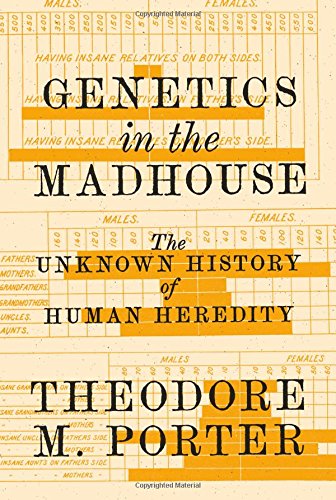

Most ebook files are in PDF format, so you can easily read them using various software such as Foxit Reader or directly on the Google Chrome browser.
Some ebook files are released by publishers in other formats such as .awz, .mobi, .epub, .fb2, etc. You may need to install specific software to read these formats on mobile/PC, such as Calibre.
Please read the tutorial at this link. https://ebooknice.com/page/post?id=faq
We offer FREE conversion to the popular formats you request; however, this may take some time. Therefore, right after payment, please email us, and we will try to provide the service as quickly as possible.
For some exceptional file formats or broken links (if any), please refrain from opening any disputes. Instead, email us first, and we will try to assist within a maximum of 6 hours.
EbookNice Team

Status:
Available0.0
0 reviewsThe untold story of how hereditary data in mental hospitals gave rise to the science of human heredity
In the early 1800s, a century before there was any concept of the gene, physicians in insane asylums began to record causes of madness in their admission books. Almost from the beginning, they pointed to heredity as the most important of these causes. As doctors and state officials steadily lost faith in the capacity of asylum care to stem the terrible increase of insanity, they began emphasizing the need to curb the reproduction of the insane. They became obsessed with identifying weak or tainted families and anticipating the outcomes of their marriages. Genetics in the Madhouse is the untold story of how the collection and sorting of hereditary data in mental hospitals, schools for "feebleminded" children, and prisons gave rise to a new science of human heredity.
In this compelling book, Theodore Porter draws on untapped archival evidence from across Europe and North America to bring to light the hidden history behind modern genetics. He looks at the institutional use of pedigree charts, censuses of mental illness, medical-social surveys, and other data techniques--innovative quantitative practices that were worked out in the madhouse long before the manipulation of DNA became possible in the lab. Porter argues that asylum doctors developed many of the ideologies and methods of what would come to be known as eugenics, and deepens our appreciation of the moral issues at stake in data work conducted on the border of subjectivity and science.
A bold rethinking of asylum work, Genetics in the Madhouse shows how heredity was a human science as well as a medical and biological one.